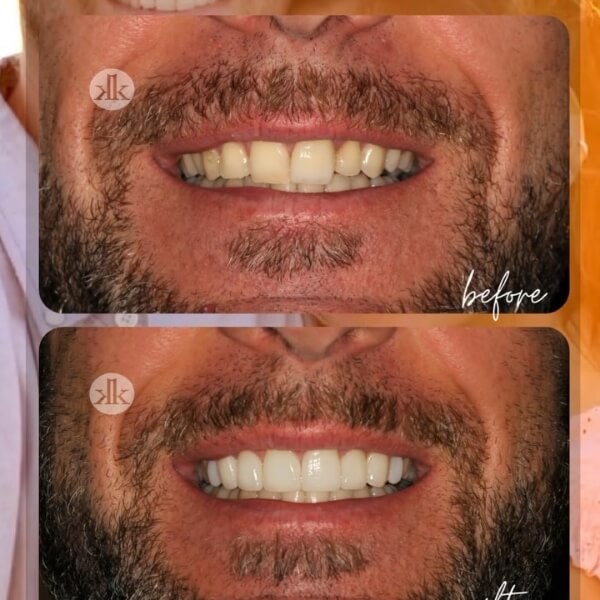Wondering what will happen if your TMJ disorder persists without receiving any treatment? TMJ disorder can cause pain, headaches, and other unwanted issues. If left untreated, TMJ disorder can worsen and result in chronic pain, dental problems, and the need for surgery. This blog discusses the various causes of TMJ disorder, how TMJ affects the body, and what TMJ treatment options are available to you at La Jolla Cosmetic Dentistry & Orthodontics.
3 Min Read:
TMJ disorder refers to problems with the temporomandibular joint, often due to the joint being overworked. Without proper treatment, TMJ disorder can persist, increasing pain and other health-related issues.
What Causes TMJ Disorder?
There are various causes linked to TMJ disorder, and multiple factors can contribute to it. An uneven bite position can put you at a higher risk for developing TMJ disorder, as your teeth regularly clash against each other when you bite down. Bruxism, also known as teeth grinding, can also lead to TMJ disorder. Some types of arthritis affect the tissue in your jaw, leading to issues with the temporomandibular joint. Stress is also associated with TMJ disorder since people often tend to clench their jaws and grind their teeth when stressed.
Other causes of TMJ disorder may be from physical injuries that resulted in trauma to the head, neck, or jaw.
How Will TMJ Disorder Affect Me?
Since the temporomandibular joint is responsible for many of your face’s functions—talking, eating, laughing, yawning, shaking or nodding your head, etc.—all of these actions will be affected by TMJ disorder. One of the most common TMJ disorder symptoms is frequent headaches. Other symptoms include neck and shoulder pain, ear ringing, and jaw pain.
If TMJ disorder is left untreated, any related pain that was previously mild can turn into chronic pain, spreading into your face and back. Headaches can worsen and become recurring, and migraines often occur as well. Due to the close proximity between the ears and the temporomandibular joints, the ears may be affected by untreated TMJ disorder, resulting in frequent ringing in the ears.
Persistent TMJ disorder can cause dental issues, primarily if your TMJ disorder was caused by jaw clenching and teeth grinding. In more severe cases, excessive jaw clenching can damage the enamel, resulting in necessary tooth restorations or even tooth replacements.
When serious TMJ disorder cases are left untreated for too long, they can cause permanent damage to the jaw joints. Once the TMJ disorder has reached this point, surgery is necessary to correct this damage.
What Are My TMJ Disorder Treatment Options?
Orthodontics
For those who have TMJ disorder due to an uneven bite, orthodontic treatment can often be enough to correct your TMJ disorder. Braces or Invisalign® can be used to straighten your smile and fix the alignment of your teeth so that when you bite down, your teeth won’t uncomfortably grind against each other or create other issues. Additional dental treatments such as bridges, crowns, or implants may also be used to fix tooth issues caused by TMJ disorder.
Mouth Guards
Mouth guards are an excellent option to protect teeth from the harmful effects of teeth grinding. They create a barrier between the rows of teeth to protect the teeth whenever a person is grinding and clenching their jaw.
BOTOX for TMJ Disorder
BOTOX injections can alleviate tension in the jaw and act as a temporary muscle relaxant. This form of treatment stops your jaw muscles from contracting and causing pain.
Want to Know More About TMJ Disorder Treatment in San Diego, CA?
To learn more about your TMJ disorder treatment options in San Diego, CA, call 858-295-0603 or fill out our online contact form today!









